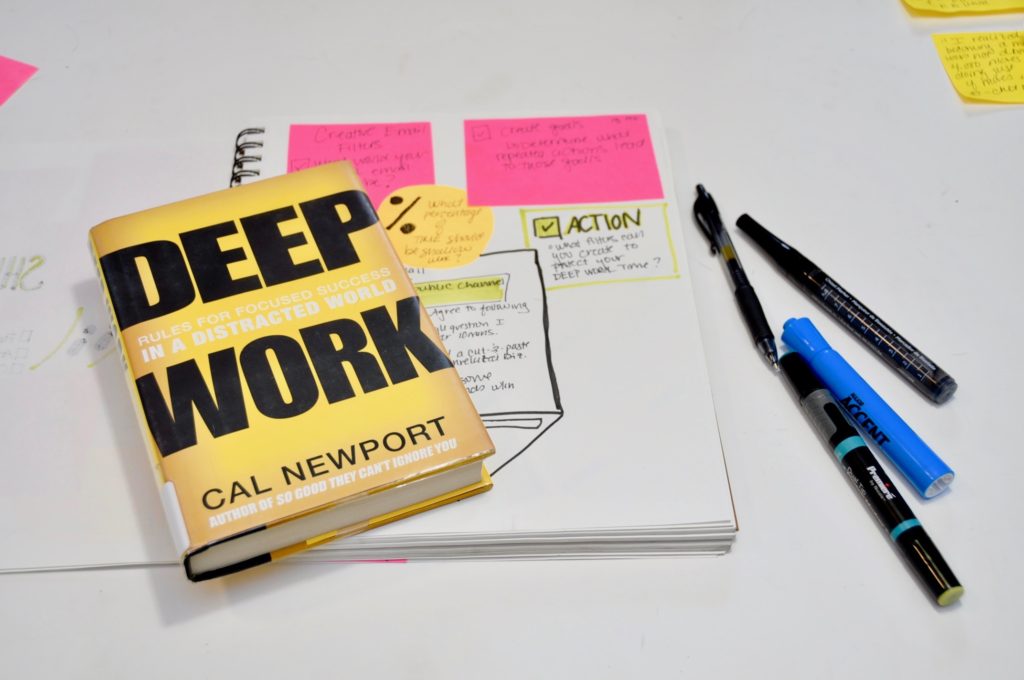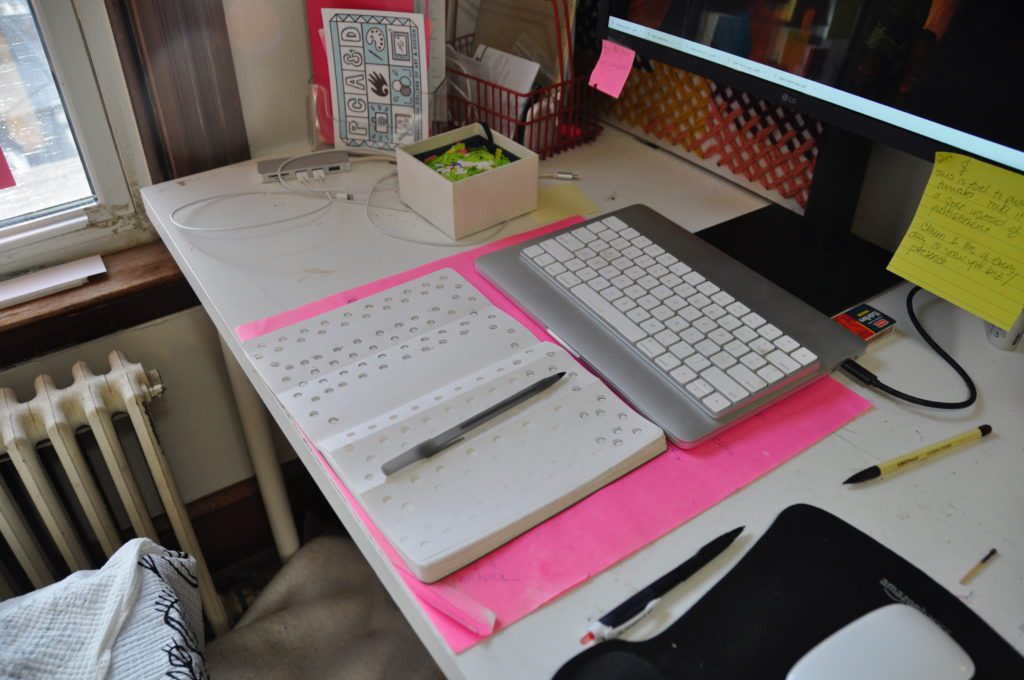Tips on Staying Focused and Taking Action During a time of Distraction
“If you don’t PRODUCE, you won’t THRIVE”
Cal Newport, DEEP Work
Right now, more than ever, it feels hard to produce.
It feels hard to focus.
In many ways, you have more time than you did before, and at the same time it feels like you have less, or like time starting working in a different way in March of 2020. You no longer know the day of the week, you’re not sure of what meal you’re to be eating, but you’re eating, and the weekend no longer seems to be a separate thing from the week.
I worked from home, well before, EVERYONE was forced to figure out how to work from home. That means, I’m ahead of you on the learning curve, and I’d like to share 3 ideas.

You can only make so many decisions in a day, choose wisely.
Decision making uses energy, and your energy is not limitless. This is why putting constraints on your life and work can be really helpful and help you to focus on what matters. If you spend your whole day wondering what you’re going to do next, you’re wasting precious will power and energy.
- Start by creating a schedule. Your schedule might be specific, and planned out by the hour, or it might be more like mine, that lists out what you need to do in a day.
- Here’s an example of my list for one day this week to give you an idea.
- Move body (15 mins)
- Walk dogs
- Tractionable launch (1 hour)
- 5:00 AP Art History Call
- USDOE Project (2 hours)
- 1:00 : ASM hangout
- Check on budget
- annual report
- create agenda for training
- Here’s an example of my list for one day this week to give you an idea.
- Create constraints: You can use constraints on pretty much anything. For example, you can create constraints about what you eat during the week, for example, we always eat pizza on Fridays. You can set constraints on the hours that you work, the way that you get dressed in the morning, or add them to any project that you’re working on. Constraints help us to focus on what really matters and push us to be more creative. Ask yourself, what are you feeling stuck on right now, what are 1-3 constraints that you could add?
- Examples:
- I eat eggs + toast + coffee every morning, and I only have one pan that I use to cook, ever.
- My projects always have constraints. I might set a specific amount of time for larger projects. Creative projects I always limit my materials options. ( We’re all likely limited to the materials that we have at home, so take that from a frustration, and turn it into a creative constraint) For example, I love sending packages, but right now, I’m not going to the post office and it’s harder for me to get things from stores that I would usually send. So, I started making paper weaving kits. I already had, paper, envelops, and stamps at home, by focusing on what I had, I was able to develop a fun project that likely would have never happened without constraints.
- Examples:
Limit Distractions
Your day is filled with distractions, some that you can control and some that you can’t. You may not have much control over when your kids decide to start fighting, or when your dogs determine that they need to go outside to go to the bathroom. But you do have control over how many times you check Instagram, email, and text messages.
It feels good to be connected now more than ever, but make sure that connection is not taking over your ability to focus. If you already know that you struggle with focus, start small. At the beginning of each day, pick one project that you really want to move forward, and commit to working on it for at least 1 hour without being distracted by anything that you have control over. Set a timer and get to work. You’ll be surprised of how much you can get done when you’re focused.
BATCH your work
Switching tasks takes a lot of time, and can leave you feeling exhausted and like you’ve accomplished nothing by the end of the day.
- Pick 2-3 times throughout the day that you’ll check your email, and only check at those times. Communicate this to your students, and co-workers. You do not need to respond 24/7, you are not a machine.
- Create a list of all of the things that you need to do. Now, remember, you don’t need to do them all at once, in fact, you shouldn’t. Look back your list, and number from 1, most important, 10 least important. Anything past the number 10 on your list can just be ignored for now. Commit to getting one project done at a time. OR working on each project for a big chunk of time. You’ll see your projects moving forward and reaching completion at a much higher rate.
Questions that you and your students can use.
5 things that help or hinder creativity.
- focus: How do you define your work, what solution are you trying to find?
- Distraction: What is the thing that’s always taking away your focus from your work?
- Energy: How do you manage your energy?
– what takes energy away from you? – what type of things give you more energy?
- Stimuli: it’s important to pay attention to what you put into your head, you will create what you take in. Write down what you’re doing each week that adds stimuli and ideas to your mind.
- Hours: It’s important to make time in your schedule for unnecessary creating. Make time in your schedule to create just because you want to.
This week I want you to carve out 1 hour, during that hour create whatever you want to. Don’t worry about the finished product just have fun. Then pay attention to how what happens in your playtime, starts to show up in your work.
6. The hard question of the day: Why should anyone care about what you create?
Know, that all of this takes practice. You are retraining your brain. Cal Newport, author of DEEP Work, calls this “Deliberate Practice” If you’re looking for more ideas and support, check out Tractionable.

